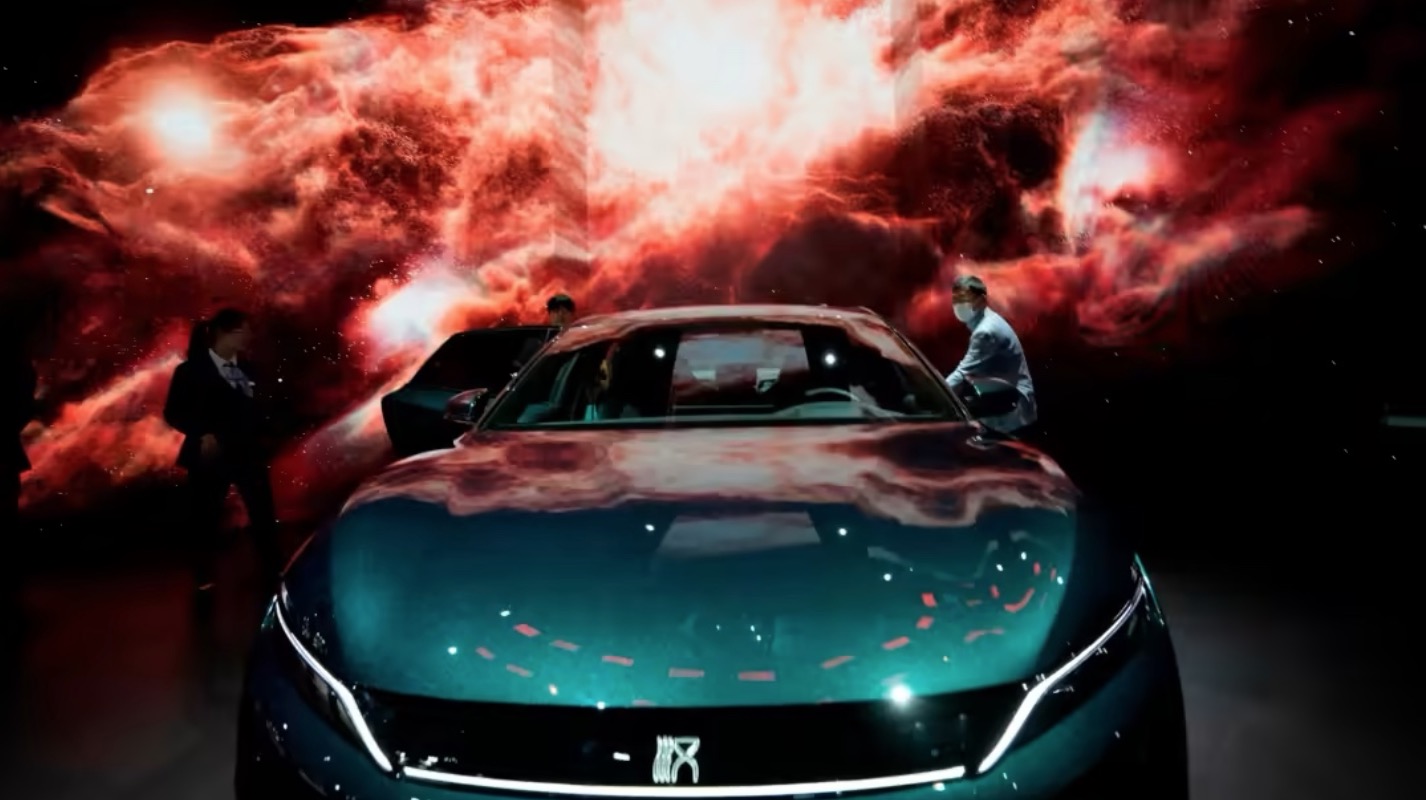31 May Financial Times : China’s car market has become a Darwinian battleground
Media Source : Financial Times
Foreign makers have been caught out by speed of transition to electric vehicles and rapid rise of domestic rivals

So far this year, almost two-thirds of the total number of passenger vehicles sold were manufactured by four Chinese groups and Tesla © AP
In the early 1980s, Volkswagen chair Carl Hahn dispatched his engineers to start manufacturing VW’s boxy Santana sedans in Shanghai. Defending the decision, the boss told his top lieutenants in Wolfsburg that Volkswagen could achieve great things in China “if we could tap into its huge potential, surpassing those we made in other countries”.
Hahn, who died earlier this year, was right on two fronts. The rise of China’s middle class created the world’s biggest auto market. And the German carmaker — one of the first foreign groups to show faith in Deng Xiaoping’s new China — for decades enjoyed the billions in annual profits that came with being the country’s top-selling brand. His prescience, however, might not have extended to what would happen four decades later when Chinese companies started to make better, more affordable cars than their foreign rivals.
For most foreign auto groups, the good days in China are now over. The likes of VW, Ford and Toyota have been caught out in China by two fundamental transitions. First, the pace at which consumers will abandon the internal combustion engine. And second, the rise of China’s homegrown electric vehicle groups.
Spurred on by the arrival of Elon Musk’s Tesla models, Chinese-made EV makers have developed rapidly, armed with cutting edge software and backed by deep domestic supply chains. They now are outselling legacy foreign rivals at an eye-watering pace. It is becoming clear to industry executives and analysts that carmakers are in a Darwinian fight for survival in China. Only a handful of EV-focused winners will stay afloat — the rest will sink in the market.
Almost two-thirds of the total number of passenger vehicles sold this year in the “new energy vehicle” market — Beijing classifies this as including plug-in hybrid and battery-powered cars — were manufactured by four Chinese groups and Tesla, according to Automobility, a Shanghai consultancy. One company alone, the Shenzhen-based BYD, which is backed by Warren Buffett’s Berkshire Hathaway, has soaked up a staggering 38 per cent share of those sales.
VW until this year sold more cars than any other company in China and still holds 13 per cent of fuel vehicle sales. BYD is now set to dethrone VW from its overall top spot in 2023. More importantly, in terms of EV market share the German group has ranked eighth this year with just 2.5 per cent of sales — and it is the only other foreign group in the top 10 beyond Tesla.
“Before the whole electrification happened, nobody knew who was going to be the winner,” said Yuqian Ding, a veteran Beijing-based analyst with HSBC. “BYD and Tesla are the winners.”
For producers still trying to make money from internal combustion cars in China, the writing is on the wall. Already nearly one in three cars sold are EVs. A price war launched by Tesla last year has only exacerbated these trends. Bill Russo, the former head of Chrysler in China who now leads the consultancy Automobility, says that the remaining price advantage fuel vehicles had over EVs is being “eroded”.
Consolidation is the likely next step. In 2022, close to three quarters of EV sales in China were concentrated among the top 10 selling EV brands, according to HSBC. That leaves a long tail of nearly 60 EV car brands competing for the scraps. The futures of dozens of Chinese groups look bleak without state support. And Greenpeace has forecast that if the adoption rate accelerates to about 70 per cent by 2030, both General Motors and Volkswagen would have more than 2mn units of stranded capacity in China.
In the 1920s, US physiologist Walter Bradford Cannon termed the responses to danger as fight or flight. This is now being chewed over in global automaker boardrooms. In recent weeks VW has doubled down with billions of dollars in new EV focused investment and vowed to produce cars that are more attractive to Chinese consumers. Ford, by contrast, is reducing spending in China, a stunning concession by a company that just a decade ago was the sixth largest player in the market.
Against this backdrop, 2023 is on track to be the first year in which Chinese brands outsell foreign cars in China. But the multinationals’ losses in China are merely the opening salvo. Containers loaded with cheap, high-tech Chinese EVs are being shipped from China’s ports at such a rate that the country is this year poised to overtake Japan as the world’s biggest auto exporter. Carmaker boardrooms need to consider not only survival in China, but the existential battle they will soon face at home.



Sorry, the comment form is closed at this time.